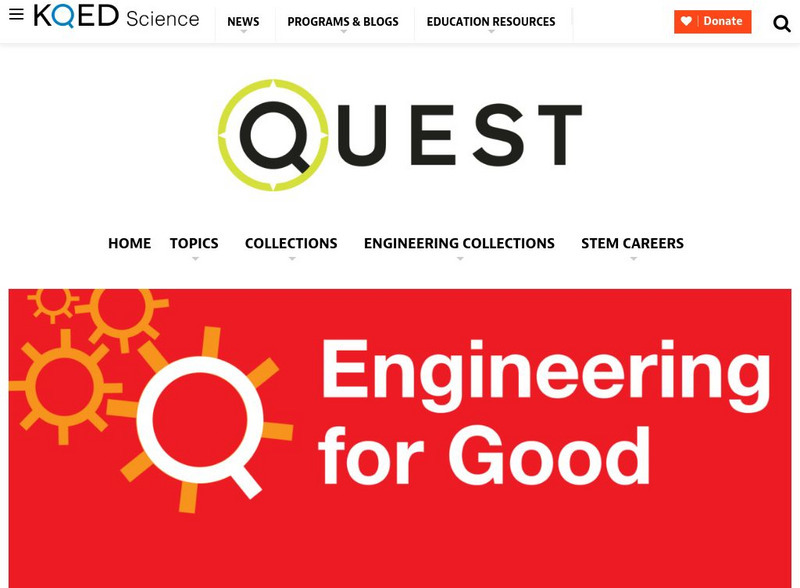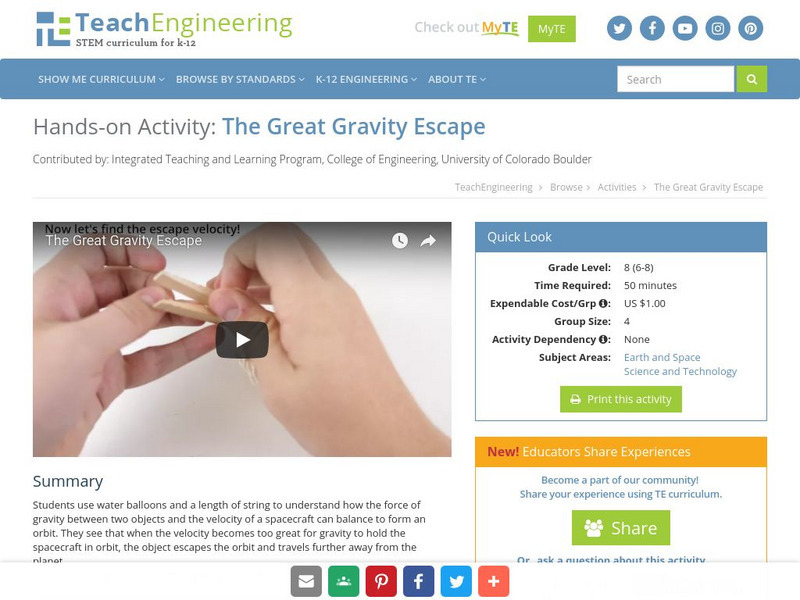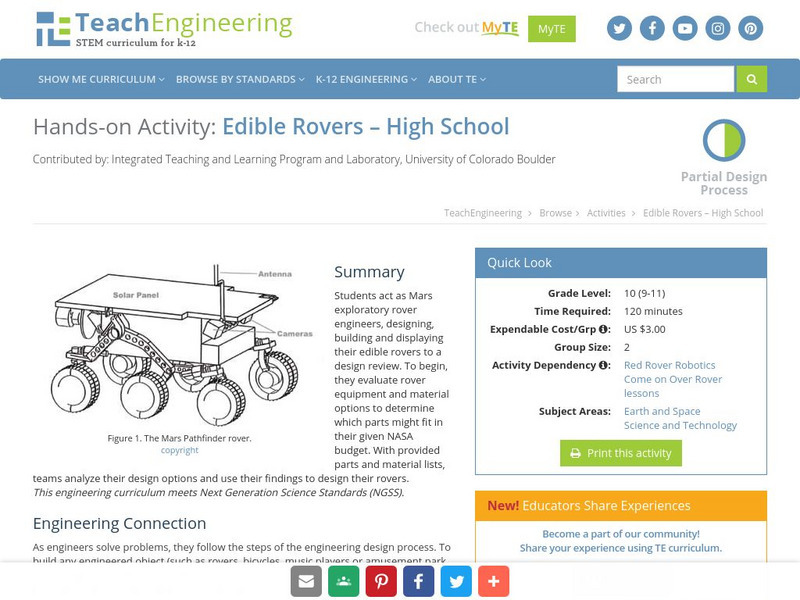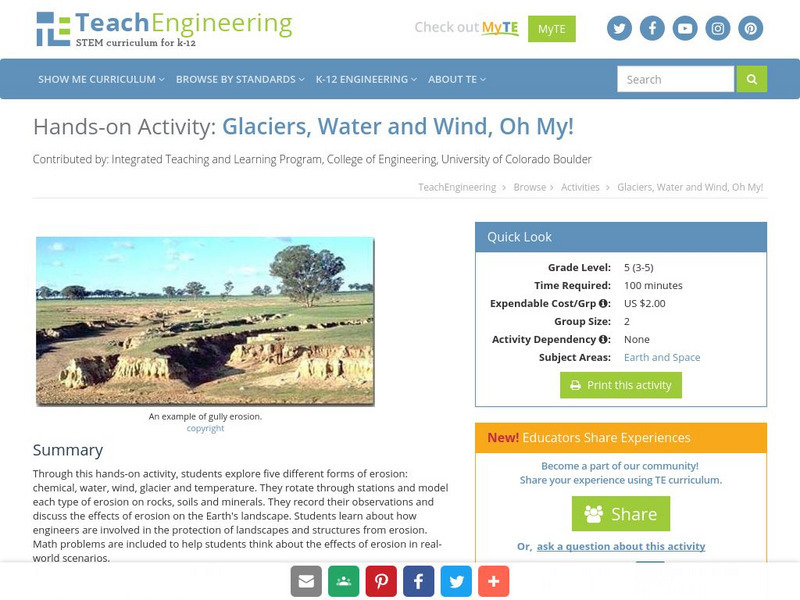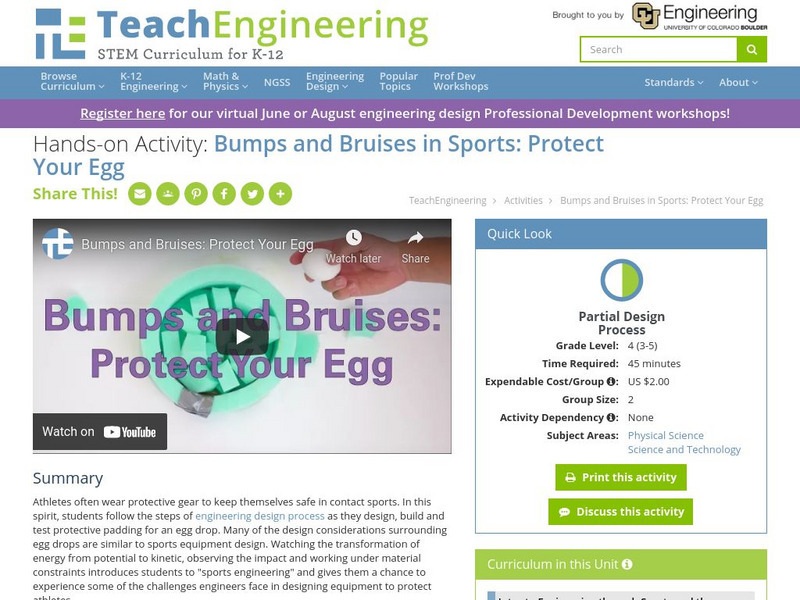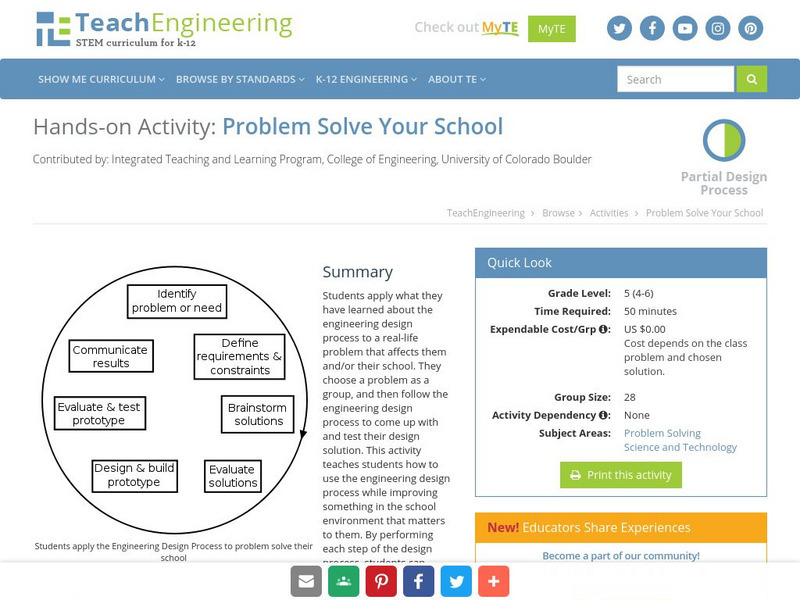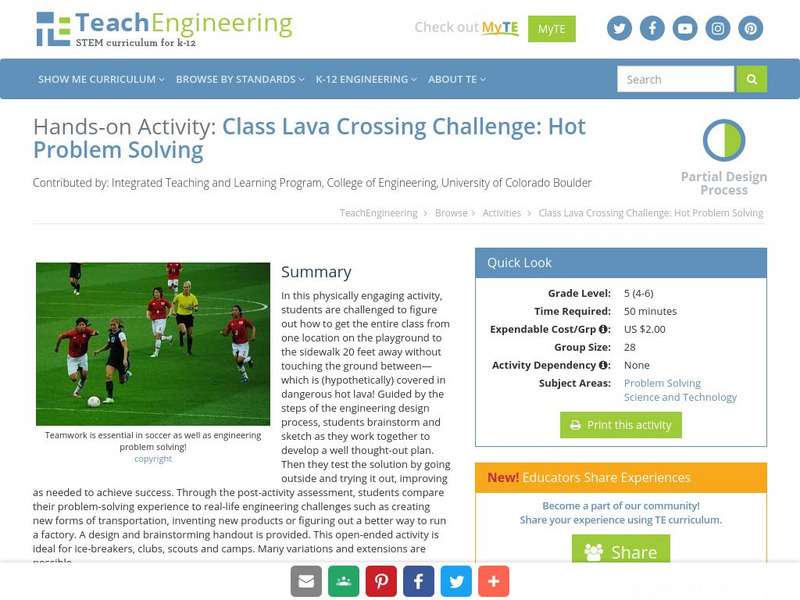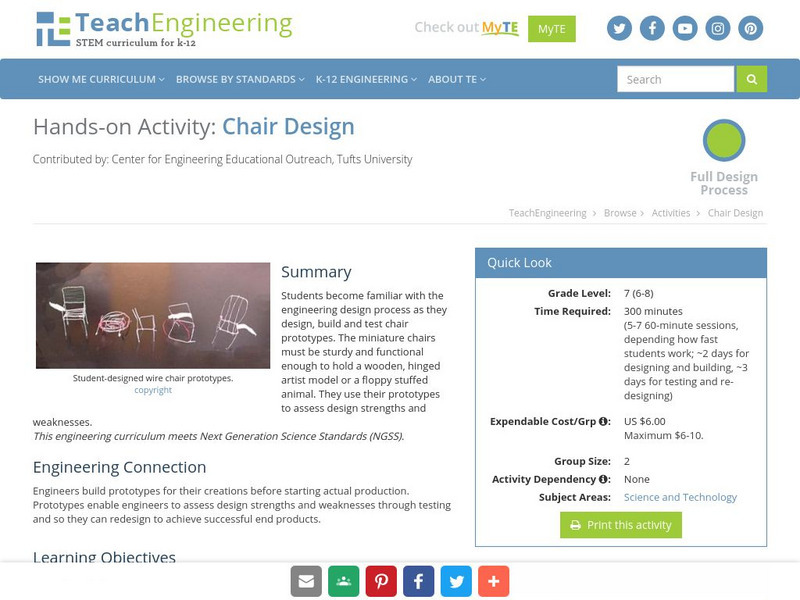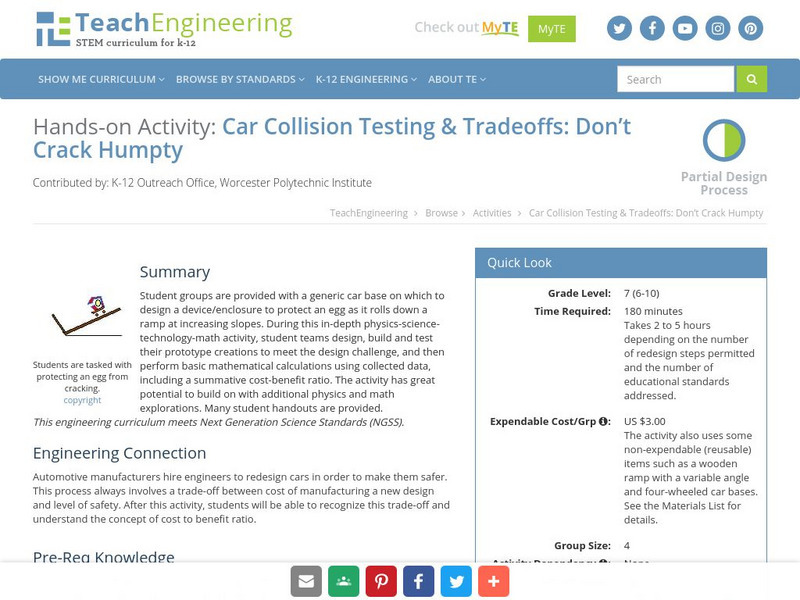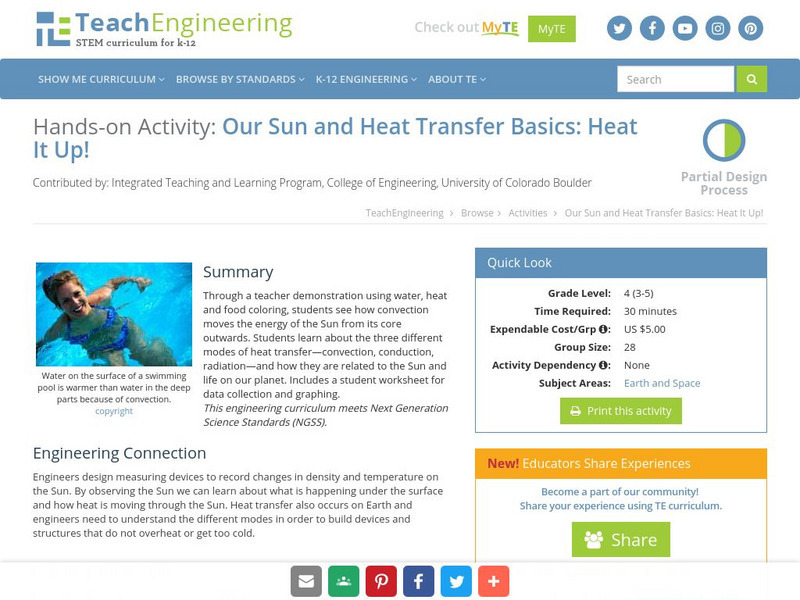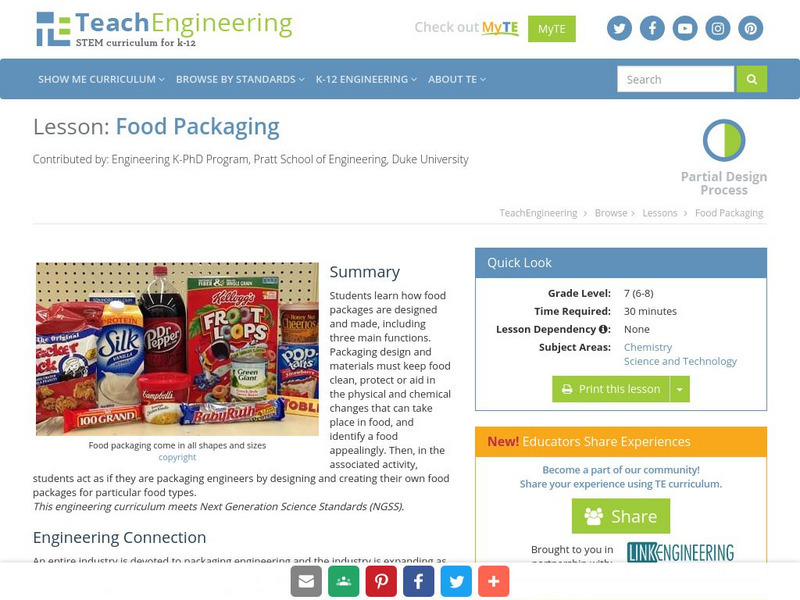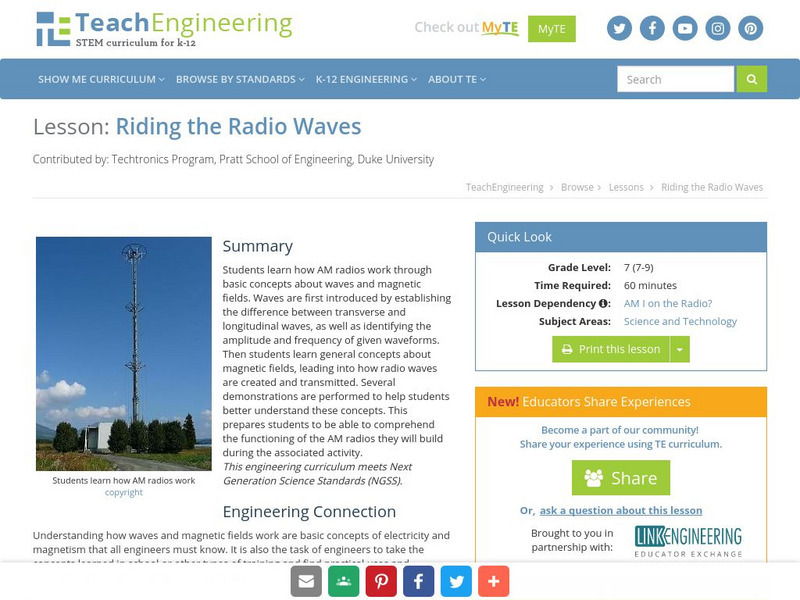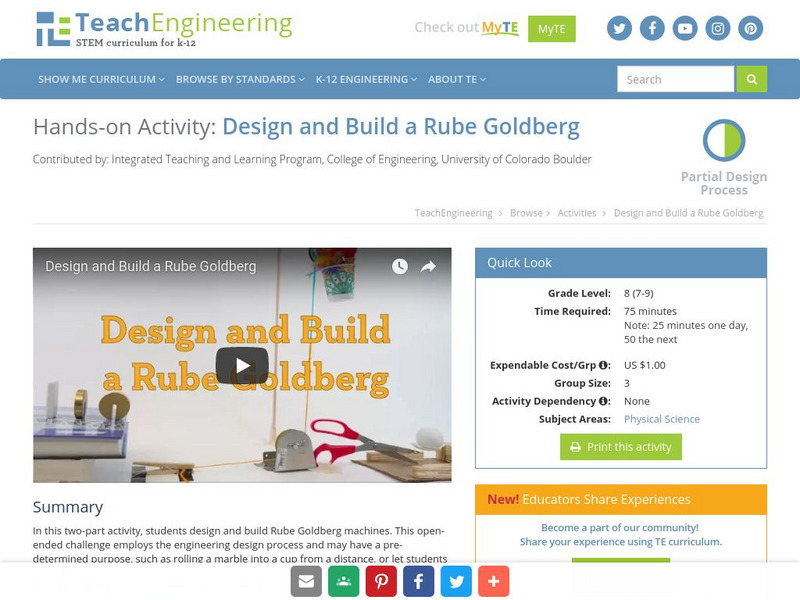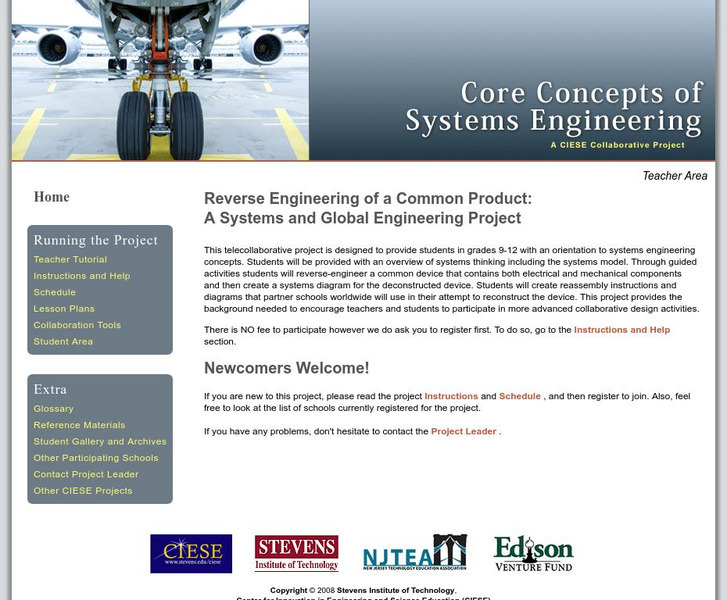Other
Georgia Institute of Technology: Ceismc
The Center for Education Integrating Science, Mathematics, and Computing is featured for their encouragement of students pursuing STEM (science, technology, engineering and mathematics) careers and furthering teachers' training in the...
PBS
Kqed Quest: A Different Kind of Science and Nature Adventure
A multimedia offering for teachers and learners to explore the latest science, nature, and environment stories.
Other
World Wide Web Virtual Library: Civil Engineering
This site is an online library of information about civil engineering.
TeachEngineering
Teach Engineering: Got Energy? Spinning a Food Web
Students learn about energy flow in food webs, including the roles of the sun, producers, consumers and decomposers in the energy cycle. They model a food web and create diagrams of food webs using their own drawings and/or images from...
TeachEngineering
Teach Engineering: Engineering and the Periodic Table
Students learn about the periodic table and how pervasive the elements are in our daily lives. After reviewing the table organization and facts about the first 20 elements, they play an element identification game. They also learn that...
TeachEngineering
Teach Engineering: The Great Gravity Escape
Middle schoolers use water balloons and a length of string to understand how gravity and the velocity of a spacecraft balance to form an orbit. They see that when the velocity becomes too great for gravity to hold onto an object, the...
TeachEngineering
Teach Engineering: Edible Rovers High School
Students act as Mars exploratory rover engineers, designing, building and displaying their edible rovers to a design review. To begin, they evaluate rover equipment and material options to determine which parts might fit in their given...
TeachEngineering
Teach Engineering: Glaciers, Water and Wind, Oh My!
This hands-on activity explores five different forms of erosion (chemical, water, wind, glacier and temperature). Students rotate through stations and model each type of erosion on rocks, soils and minerals. The students record their...
TeachEngineering
Teach Engineering: Bumps and Bruises
Students learn about the role engineers play in creating protective gear for sports. Students then build a protective landing pad to catch a dropped egg without it breaking
TeachEngineering
Teach Engineering: Survive That Tsunami!
Students use a table-top-sized tsunami generator to observe the formation and devastation of a tsunami. They see how a tsunami moves across the ocean and what happens when it reaches the continental shelf. Students make villages of model...
TeachEngineering
Teach Engineering: Breaking Beams
Students learn about stress and strain by designing and building beams using polymer clay. They compete to find the best beam strength to beam weight ratio, and learn about the trade-offs engineers make when designing a structure.
TeachEngineering
Teach Engineering: Build Your Own Insect Trap
In this hands-on activity students design a trap to catch a fictional insect. They must build the trap based on things they learn about the insect.
TeachEngineering
Teach Engineering: Problem Solve Your School
Students apply what they have learned about the engineering design process to a real-life problem that affects them and/or their school. They chose a problem as a group, and then follow the engineering design process to come up with and...
TeachEngineering
Teach Engineering: Hot Problem Solving
Student teams follow the steps of the engineering design process to meet the challenge of getting their entire class from one location on the playground to the sidewalk without touching the ground between. The class develops a well...
TeachEngineering
Teach Engineering: Focus on Fabrics: Putting Materials to Good Use
The goal is for students to understand the basics of engineering associated with the use, selection, and properties of fabrics. A wide variety of natural and synthetic fibers are used in our clothing, home furnishings and in our travel...
TeachEngineering
Teach Engineering: Chair Design
Students become familiar with the Engineering Design Process as they design and build prototypes for a chair. The miniature chair must be sturdy and functional enough to hold a wooden, hinged artist model or floppy stuffed animal.
TeachEngineering
Teach Engineering: Car Collision Testing & Tradeoffs: Don't Crack Humpty
Student groups are provided with a generic car base on which to design a device/enclosure to protect an egg as it rolls down a ramp at increasing slopes. During this activity, student teams design, build and test their prototype...
TeachEngineering
Teach Engineering: Heat It Up!
Through a teacher demonstration using water, heat and food coloring, students see how convection moves the energy of the Sun from its core outwards. Students learn about the three different modes of heat transfer (convection, conduction,...
TeachEngineering
Teach Engineering: Fairly Fundamental Facts About Forces & Structures
This lesson plan will introduce young scholars to the five fundamental loads: compression, tension, shear, bending, and torsion.
TeachEngineering
Teach Engineering: Food Packaging
This lesson focuses on how food packages are designed and made. Students will learn three of the main functions of a food package. They will learn what is necessary of the design and materials of a package to keep food clean, protect or...
TeachEngineering
Teach Engineering: Riding the Radio Waves
In this lesson learners learn how AM radios work through basic concepts about waves and magnetic fields. Waves are first introduced by establishing the difference between transverse and longitudinal waves, as well as identifying the...
TeachEngineering
Teach Engineering: Design and Build a Rube Goldberg
In this two-part activity, students design and build a Rube Goldberg machine. The open ended problem uses the engineering design process and can have a preset purpose, such as rolling a marble into a cup from a distance, or can be left...
TeachEngineering
Teach Engineering: Where's the Water?
In this instructional activity, the students will conduct an investigation to purify water. Students will engineer a method for cleaning water, discover the most effective way to filter water, and practice conducting a scientific...
Center for Innovation in Engineering and Science Education, Stevens Institute of Technology
Ciese: Reverse Engineering of a Common Product
A telecollaborative project where learners communicate engineering concepts across the globe. Student tasks are to deconstruct a common device, then design reassembly instructions for others worldwide to follow to attempt to reconstruct...



